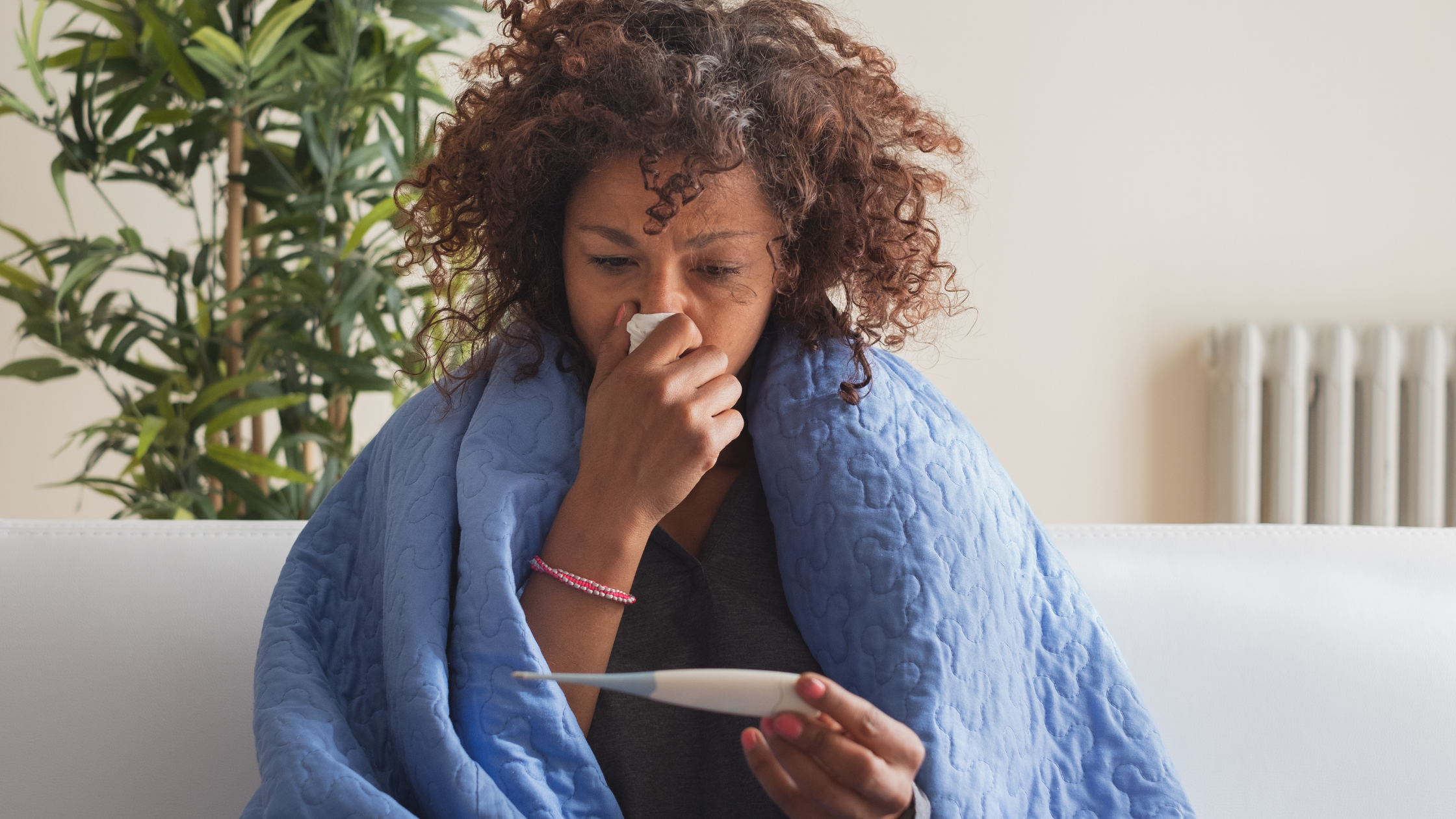Low Immune Function & COVID-19 Risk
How often someone gets the cold or flu can be a sign of how strong their immune system is and how well their body is able to fight off viruses to which it has previously been exposed. This includes the rhinovirus (the common cold), as well as the influenza virus (the seasonal flu).
The coronavirus responsible for COVID-19, SARS-CoV-2, is a novel virus, one that has not been previously seen in humans. Without previous exposure, and in the absence of a vaccine, the human body does not have the antibodies needed to mount an immune defence that could fight off infection. Furthermore, recent studies are finding that the antibodies made by the body after infection with COVID-19 may only last for about 2 to 3 months.
Factors that may play into the severity of illness once exposed to the virus include viral load (or the dose of the virus to which the body is exposed), and the strength of someone’s immune system. A weakened immune system can lead to a more serious infection as more organs can be affected causing more damage to the body.
All of this together means that it is important to prevent infection by:
- Washing your hands often with soap and water for at least 20 seconds, or where this is not an option, using an alcohol-based hand sanitizer that has at least 60% alcohol and that is approved for use in Canada (see resources for list);
- Avoiding touching your face, eyes, nose or mouth with unwashed hands;
- Keeping 6 feet (2 meters) of physical distance from others when possible, and
- Wearing a mask when in public or when physical distancing is not possible
Generally healthy individuals can engage in the following behaviours to keep their immune system functioning optimally:
- Eat well, and stay hydrated
- Ensure that you are providing the body with the energy, macronutrients and vitamins/minerals needed to carry out different cellular processes.
- Engage in regular physical activity
- Moderate to vigorous intensity physical activity can help enhance immune functioning and improve psychological stress.
- Get enough sleep every day
- The body needs 7 to 9 hours of uninterrupted sleep per night to reduce stress hormones in the body, and allow the cytokine proteins and T-cells to do their work in fighting infection in the body.
- Manage stress levels
- Stress hormones can suppress the immune response and lead to low grade inflammation in the body.
- Avoid smoking or vaping
- This can damage airways, make pre-existing respiratory issues worse, and lead to more severe illness from COVID-19.
Main Point
While we can take steps to maintain a strong immune system, everyone is considered susceptible to COVID-19. This is because our bodies do not have the antibodies required to mount an immune defence to this new virus. It is important to follow public health guidelines to prevent contracting and spreading COVID-19.
Sources:
https://www.rush.edu/news/weakened-immune-systems-during-covid-19




